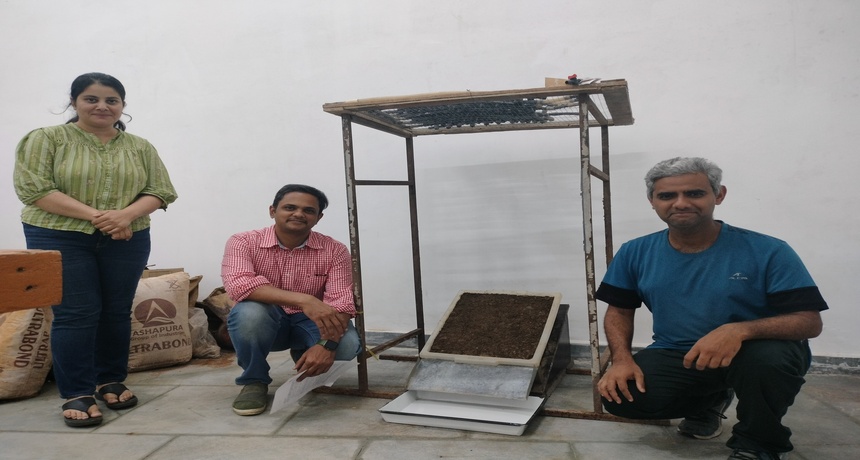IIT Mandi researchers measure the impact of bioengineering against soil erosion
Tanuja Joshi | August 22, 2023 | 01:08 PM IST | 2 mins read
IIT Mandi research was published in Soil and Sediments journal.

NEW DELHI: Indian Institute of Technology Mandi conducted research on plants and fibres to combat soil erosion. The team has developed methods to evaluate the effectiveness of bioengineering techniques in countering the effects of soil erosion according to the institute.
The research was published in Soil and Sediments journal. The research paper was co-authored by Kala Venkata Uday, associate professor, School of Civil and Environmental Engineering, IIT Mandi, and Arnav Bhavsar Vinayak, associate professor, school of computing and electrical engineering, IIT Mandi along with their research scholars Charu Chauhan and Manvendra Singh.
ALSO READ| IIT Mandi to host its 7th edition of Himalayan Startup Trek from September 29
According to IIT Mandi, soil erosion is characterised by the detachment and transportation of soil particles due to natural forces like rainfall and wind and poses threats to agriculture, water systems, and land stability. As per the Food and Agriculture Organization's (FAO) Global Soil Partnership, it is estimated that an annual loss of 75 billion tonnes of soil globally, amounts to a financial loss of approximately US dollar 400 billion each year.
The IIT Mandi stated that India is dependent on agriculture and nearly 60 percent of the land faces soil erosion issues. The research team has been exploring the potential of bioengineering as a solution. Bioengineering leverages living plants and natural fibers to stabilise soil and mitigate erosion while fostering biodiversity through the introduction of native plant species.
ALSO READ| IIT Mandi researchers develop solutions for effective recycling of solar cells
The researchers have devised a cost-effective laboratory setup that simulates rainfall conditions to study erosion. According to the institute, by controlling variables like rainfall intensity, slope gradient, soil texture, and vegetation cover, the impacts on soil erosion can be studied.
The IIT Mandi team used advanced image analysis techniques to quantify soil erosion and demonstrated the efficacy of bioengineering methods in erosion prevention. The study further delves into the mechanisms of soil detachment, transport, and deposition as per the institute. The researchers have demonstrated how the combination of native plant roots and Indian goosegrass fibres can transform erosion-prone zones into areas with minimal erosion.
ALSO READ| IIT Mandi introduces 5 new programmes; general engineering, materials sciences among new courses
K V Uday, associate professor of the School of Civil and environmental engineering, at IIT Mandi said, “We've developed a simple method to gauge the effectiveness of nature-based erosion mitigation solutions. Our method can differentiate between splash-induced erosion and runoff-induced erosion, a capability lacking in current methodologies. Also, numerical studies help enhance specific strategies for soil erosion control in larger fields.”
Follow us for the latest education news on colleges and universities, admission, courses, exams, research, education policies, study abroad and more..
To get in touch, write to us at news@careers360.com.
Next Story
]IIT Mandi organises G20 meet on skill development
The deputy CM announced the handover of the Skill Development Centre in Una to IIT Mandi as a satellite center for skill development. He highlighted the importance of indigenizing technologies in fields like Electric Vehicles to create sustainable and affordable solutions.
Tanuja Joshi